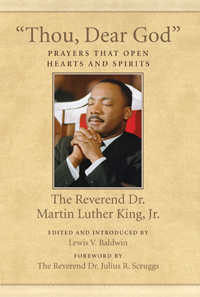For the speech: click here Martin Luther King, Jr. Who is your God_-1
Friends,
I delivered at 6 P.M. at the Lorraine Motel in Memphis, TN on April 4, 1993, the twenty-fifth anniversary of the murder of Martin Luther King, Jr. at 6 P.M. at the Lorraine Motel on April 4, 1968. The talk was an attempt to reverse what had become a prominent trend when discussing Martin Luther King, Jr. over the previous decade, namely, the systematic minimizing, downplaying, ignoring and disparaging of the absolute centrality of nonviolence in his life and work. It was as if, even those devoted to him and his work, as well as those who desired him to be a patron saint of their peace and justice cause, wanted no part of the essential dimension that nonviolence held in all his programs and pursuits of peace and justice. In this amnesia inducing process, Dr. King’s historical memory was beginning to mirror the historical memory of Jesus, that is, he was becoming a person with a multitude of admirers and fans, most of whom wanted no part the nonviolent love of friends and enemies that was axial to his whole existence. However, Martin Luther King, Jr. without his total and unreserved commitment to nonviolence to the very end of his life is not Martin Luther King, Jr., any more than Jesus is Jesus without His total and unreserved commitment to nonviolence to the very end of His life.
My address at the Lorraine Motel on April 4, 1968, seemingly had no effect in stopping the systematic presentation of Dr. King with little or no reference to the all encompassing place nonviolence actually held in his life and in his social justice efforts. Yet, here are the words of Martin himself:
“In recent months several people have said to me: ‘Since violence is the new cry, isn’t there a danger you will lose touch with the people and be out of step with the times if you don’t change your views on nonviolence?’ My answer is always the same. Occasionally in life one develops a conviction so precious and meaningful that he will stand on it till the end. That is what I have found in nonviolence. I’m committed to nonviolence absolutely. I am just not going to kill anybody, whether it’s in Vietnam or here…The stage of history is replete with the chants and choruses of the conquerors who came killing in pursuit of peace.”
A violence endorsing Rev. Martin Luther King, Jr. is as absurd as a violence endorsing Jesus. Fundamental human integrity, decency and honesty insist that a truth for which Martin and Jesus daily and ultimately laid down their lives should not be calculatingly bracketed out of the memory of their lives by those who are the institutional gatekeepers for preserving the remembrance of them. But if the gatekeepers of their memory are self-serving deceivers via deliberate omission, then the individual person must speak clearly the truth, that nonviolence was pivotal to and irremovable from each of their lives. He or she may not have the bull horns that an institution has at it disposal. But he or she has power. The power of saying that 1+1= 2 to those who are trying to double cross humanity by saying 1+1= 5. They have the power of truth.
Take a moment and consider the attached reflection on Martin Luther King, Jr. from twenty-five years ago on this day. It might be helpful in clarifying the place of nonviolence in some life and death matters that are universal to humanity—including you and me.
-Emmanuel Charles McCarthy

